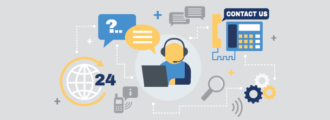Enterprise resource planning (ERP) solutions are built to be flexible and adaptable to keep up with ever-changing business and industry requirements, enhance process efficiency, and improve your company’s bottom line.
But, when your current ERP system isn’t cutting it anymore, it might be time to consider upgrading or replacing your software.
Read on to learn more about the ERP upgrade process, as well as how our senior-level consultants can help your organization.
What is an ERP Upgrade?
ERP systems play a critical role in ensuring your company is not only prepared and able to withstand change within the organization or industry, but also help achieve key business objectives so your company operates as efficiently and effectively as possible.
But, what happens when your ERP solution lags or falls behind the mark for optimal functionality? ERP upgrades.
There are two main methods of action when it comes to upgrading your ERP solutions..
- Version upgrade: A version upgrade involves moving from an older version of an ERP software to a newly released one within the same vendor. Let’s say your company has been running JD Edwards EnterpriseOne 9.1 for a few years now, but the software vendor recently released Version 9.2. Your ERP upgrade process here would involve moving from Version 9.1 to 9.2 within your already established JD Edwards System.
- System upgrade: A system upgrade requires the movement of your company and employee data from your old system to an entirely new and different one. This could involve moving from outdated legacy technology (i.e., an older version of Lawson) to a modern ERP system (i.e., Workday) to enhance overall productivity and functionality.
By upgrading to new ERP systems, you will be able to keep up with ever-evolving business requirements, execute business processes more efficiently, and gain real-time visibility for more valuable insights.
Why Do I Need an ERP System Upgrade?
Whether your current ERP system isn’t cutting it when it comes to keeping up with changing business standards and requirements or you’re interested in exploring the advanced features and capabilities that come with a new ERP system, you’re in need of an ERP system upgrade or software replacement.
Here are a few of the major reasons your company may want (or need) to upgrade your ERP systems…
Improve Productivity
One of the most important considerations when it comes to deciding whether to stick with your current system or upgrade to a new one is the level of productivity for both the system and your employees.
On one hand, you want an ERP system that streamlines and supports your core business processes to ensure your organization is running as smoothly and efficiently as possible. On the other, finding a system that gives your employees better data and quicker insights and saves time needed for administrative work is critical to your success.
Keep Up With Business Growth
In today’s world, business and industry standards and requirements are continuously changing (and forcing you to keep up). But, without an ERP solution that can withstand continual change, your company will not only fall behind the mark when it comes to competing with top-performing companies in the industry, but you will also suffer from less-than-optimal business operations and limited productivity.
When considering the switch to a new ERP system, it’s important to choose a solution that will not only allow your employees to manage more business transactions, but also has the flexibility to adapt to new markets, business lines, products, and services.
Replace your Legacy System
When it comes to considering an ERP upgrade, legacy software systems are often the star of the conversation. Do we just upgrade to the newest version of the software? Do we make the jump to a brand new software? If we upgrade anything, will we lose our customizations?
And, while there’s a laundry list of questions to ask when deciding between legacy technology and new ERP software, it’s important to assess a few things before making a decision.
- What is my ERP system supposed to do?
- Is it getting the job done?
- What do you need from your ERP solution?
- Does your current system offer the functionality you need?
- Are there other options that could more efficiently meet your needs?
Reduce IT costs
While upgrading your ERP system can be quite the investment for your company, it can help drastically save time wasted on tedious manual processes and reduce overall costs in the long run.
Because of its advanced functionality and dependability, an upgraded ERP platform will not only improve employee and system performance and effectiveness, but it will also enhance process productivity and accuracy, integrate all your solutions in one place, and increase your return on investment (ROI).
Maintain Regulatory Compliance
Rules and regulations are continuously evolving to meet current business and industry needs, but oftentimes, outdated ERP systems fail to keep up to speed. For example, if new general accounting rules are released, but your ERP systems doesn’t offer the required controls, your company could be at risk for failure to meet regulations.
But, if you were to upgrade your ERP system, your company would have all the controls, tools, and resources needed to maintain compliance through automatically updated software and improved functionality.
Should I Upgrade or Replace my ERP Software?
Before making the switch to a new version of your ERP system or an entirely different software, it’s important to consider the benefits of both upgrading your system and replacing it all together…
ERP Upgrades
Typically, upgrading your ERP system is less disruptive than a complete replacement, so there are fewer change management issues for your management team to handle. An ERP upgrade also usually eliminates the need for partnership with new ERP vendors and helps maintain previously created customizations and integrations within your system.
ERP Replacement
Because many new ERP systems, modules, and applications have been created since a company’s initial ERP implementation, software from a new provider may offer more advanced functionality or better tools to get the job done.
And, in the case of a merger or acquisition between two companies, replacing old systems with a brand new one can not only reduce confusion between the two business units, but it can also improve collaboration and interoperability across the board.
Things to Consider When Upgrading Your ERP Solution
Analyzing current business processes and functionality
Before beginning business transformation processes, such as an ERP upgrade, it’s important to take a closer look at your current ERP functionality and analyze the effectiveness of your current business processes.
Without identifying your main areas of concern, your company could potentially begin an ERP upgrade project that does not accurately meet the needs of the employees, software, and organization as a whole.
Establishing a strong ERP upgrade project team
Members of your project team should not only understand the limitations of your current ERP system, but also have the skills needed to complete the job at hand and want to be involved in the ERP upgrade process.
A strong project team will consist of employees from multiple different areas of the organization and levels of experience, including a project manager, technical manager functional representatives for each area of the technology, and other senior IT leaders to support, lead, and train end-users throughout the project.
Establishing an effective strategy for your upgrade
Creating a well-defined plan for your ERP upgrade project is essential in making sure your project steps are aligned with organizational goals, objectives, and requirements. Your project plan should include…
- Scope and scale of the project throughout the organization
- Business objectives and project goals
- Project timeline/schedule
- Outlined steps for infrastructure and change management
- Defined roles and responsibilities for each member of the project team
- Project requirements and budget
Conducting new system training for end-users
Once your team has laid the foundation for your ERP upgrade project and conducted the steps needed to execute your plan properly and efficiently, it’s now time to get your new version or system up-and-running.
And, after your team completes all the steps of your ERP upgrade plan, providing continuous training for end users can make or break the success of your new system and your company as a whole. To get the most out of your team and software, it’s important to ensure each user has the right skills, resources, and bandwidth needed to access the system and complete tasks correctly and in a timely manner.
How Can We Help?
Whether you need help choosing a new ERP system, outlining a plan for your upcoming ERP projects, navigating complex ERP implementations, integrations, and upgrades, or anything in between, Surety Systems is here to help.
Our team of senior-level ERP consultants have the technical skills and functional expertise needed to lead your team to success, regardless of the complexity of your project needs.
They are experts in virtually all areas of enterprise resource planning and have extensive experience with a wide variety of ERP vendors, including SAP, Infor Lawson, Workday, JD Edwards, UKG Kronos, and Microsoft Dynamics.
Getting Started with Us
Interested in learning how ERP upgrade services can improve process efficiency, enhance employee engagement, and maximize your technological investment?
Contact us today to learn more about our ERP consulting services or get started on a project with one of our expert consultants.



